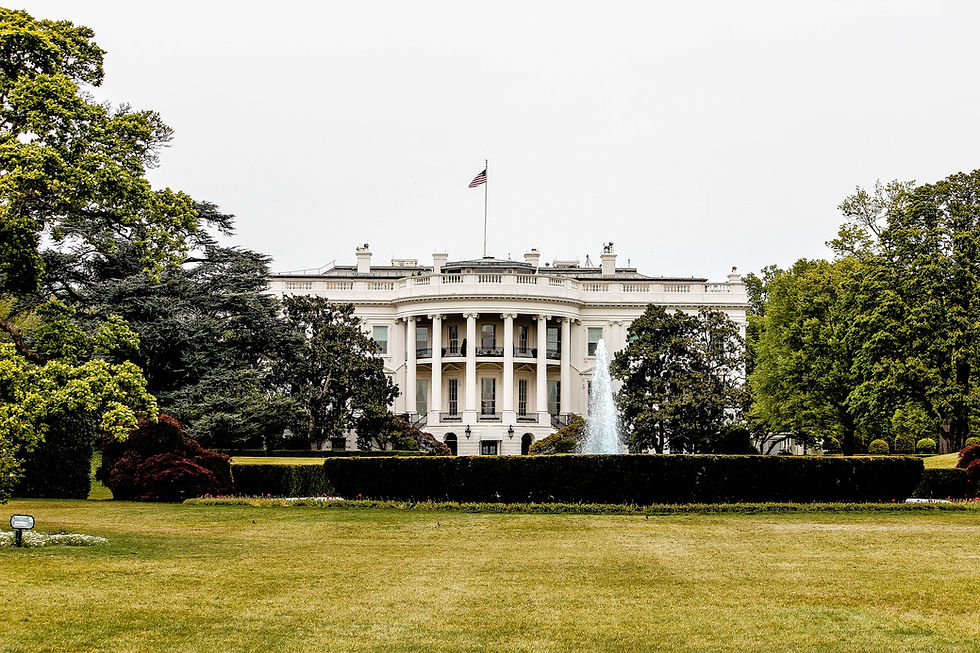The estate tax still exists, Mr. President
- Paul Premack

- Mar 6, 2020
- 3 min read
Updated: Oct 12, 2021
This column first appeared in the San Antonio Express News and other Hearst Newspapers on March 3, 2020.

Dear Mr. Premack: I was watching the news report last week about President Trump’s campaign rallies in Iowa, Michigan, and Colorado. The video and the transcript quote the President as saying that because the tax laws were changed in 2017, “there is no death tax or inheritance tax”. He said, “We got rid of it. No more death tax, no more inheritance tax.” I’ve never been a supporter of the death tax, but thought my memory was that the 2017 tax law change modified but did not eliminate the death tax. What is the status of these taxes today? – C.W.
The 2017 Tax Cut and Jobs Act was passed into law by Congress and signed by President Trump in the last days of 2017. Before we get into the President’s claims at his recent campaign rallies, let’s define terms.
“Inheritance tax” is broadly defined as a tax imposed on the heirs of a decedent, based on the value of the assets each heir is inheriting. Inheritance taxes have been imposed by various states over the years, but there has never been a federal inheritance tax. Texas had an inheritance tax, but the Texas legislature repealed it in year 2005. The 2017 Tax Cut and Jobs Act did not and could not eliminate inheritance tax because 1) there was no federal inheritance tax, and 2) the federal government does not set tax policy for the states.
“Death tax” is a politically loaded term for the “estate tax”. There is not actually a death tax as in “sorry, you can’t die until you’ve paid your death tax”. But there has been a federal tax on estates, on and off, starting in 1797. The modern estate tax was enacted in 1916. It is a tax imposed on the estate of the person who died. When tax is due, it is paid by the estate’s Executor prior to making a distribution to the various heirs (it is not paid by the heirs themselves).
Back during the Ronald Reagan presidency, the federal estate tax was set at 50% of all assets that exceeded $192,800 in value after both spouses died. The exemption was gradually raised to $675,000 in the 1990s, then raised again to $3.2 million in 2009, to $10 million for a married couple in 2012, and to $22 million for a married couple in 2017. The top tax rate was reduced from 50% to 40% for estates that exceed the exemption amount. In 2018 there were only 1,900 estates that paid federal estate tax.
The 2017 Tax Cut and Jobs Act did not eliminate the federal estate tax. Congress and the President did not “get rid of it”. The federal estate tax still exists. However, the 2017 tax change did increase the exempt threshold for the estate tax so that it is only imposed on estates that (as of 2020) exceed $11.58 million in value. For a married couple, the exemption threshold is $23.16 million. So, the President did not get rid of the estate tax; it is still due from large estates.
That is not to say that President Trump did not push to eliminate the estate tax entirely. He did. But Congress realized that the President’s proposal in 2017 would have been a huge tax cut for the very wealthy at the same time that it increased taxes on those of lesser wealth. Repealing the estate tax would have also repealed the “free step up in basis” resulting in new capital gain taxes on the heirs of small estates.
Here is an example: Mom bought 1000 shares of AT&T years ago when it cost $2 per share. When she died, each share was worth $37. That is all she owned, so there was $0 estate tax, and because of the free step up in basis her heirs paid $0 capital gain tax if they sold the stock. If Trump had gotten rid of the estate tax in the way he proposed, he would have eliminated the free step up in basis so when they sold the stock, they’d owe about $7000 instead of $0, which is a tax increase. At the same time, the Trump proposal would have eliminated the 40% tax on wealth exceeding $22 million. Someone with $100 million would save about $31 million while the small estate heirs would pay new capital gain taxes that, before Trump’s proposal, would have been free from tax.
Paul Premack is a San Antonio Certified Elder Law Attorney, handling Wills and Trusts, Probate, and Elder Law issues. View past legal columns or submit free questions on those legal issues via www.Premack.com.




Comments